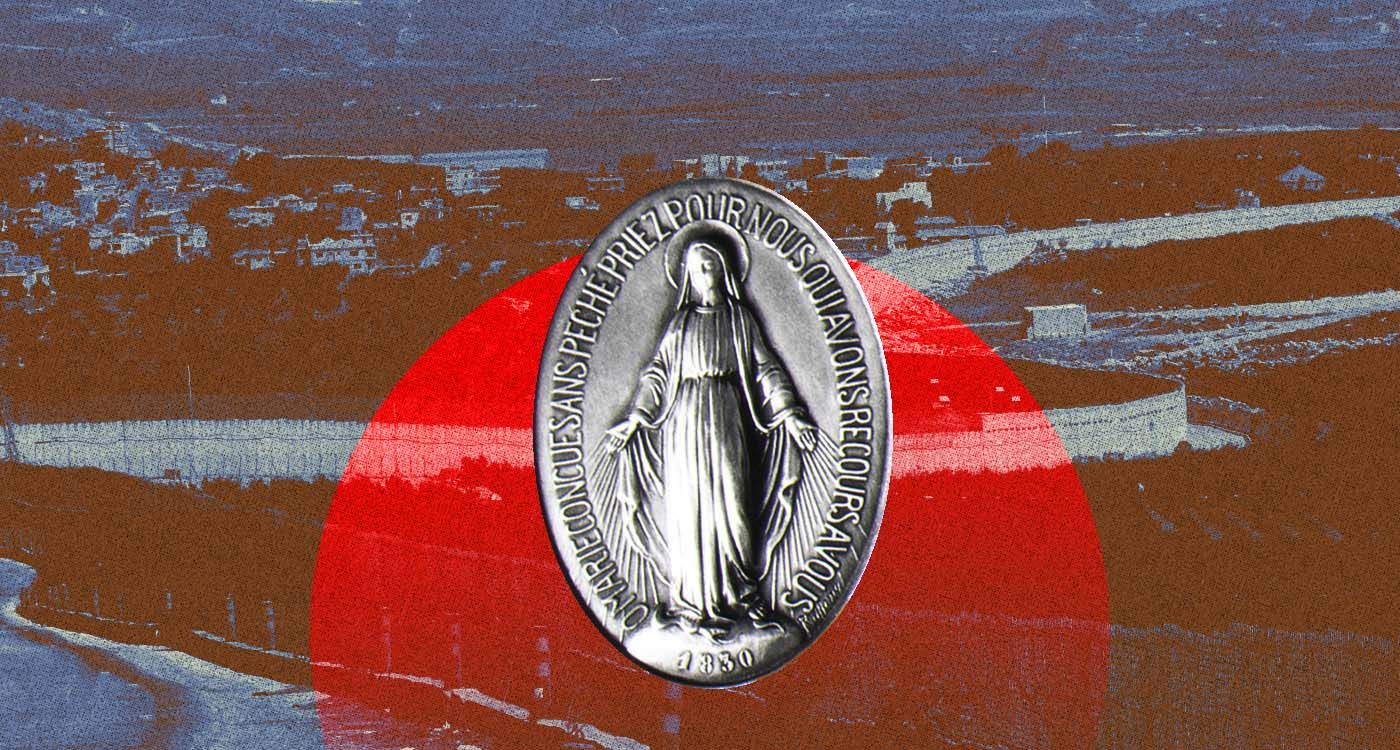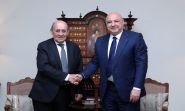
The ceasefire between Israel and Hezbollah took effect on November 27, coinciding with the Latin Church’s feast of Our Lady of the Miraculous Medal. For many, this timing is seen as a divine gift, strengthening their faith that the end of hostilities was heaven-sent.
The Chapel of the Miraculous Medal on Rue du Bac in Paris holds a deep significance for many Christian Lebanese, who often wear the medal as a cherished token of faith, adorning their necks or wrists. This medal was designed following detailed instructions given by the Mother of Jesus to Sister Catherine Labouré during a remarkable apparition in 1830. Inside the convent chapel on Rue du Bac, visitors can still see the chair where the Virgin Mary, revered as the Queen of Heaven, is believed to have sat during her conversation with Sister Labouré.
Entrusting the young nun with the mission of creating and spreading the medal, the Virgin Mary proclaimed,
“Have a medal struck upon this model. All who wear it around their neck will receive great graces. Abundant graces will be granted to those who wear it with confidence.”
This profound trust in the Virgin Mary’s invisible presence is the cornerstone of her promise. The Miraculous Medal is far more than a simple good luck charm.
In today’s fraught and tense times, as nuclear threats loom from Pyongyang to Moscow, the Virgin Mary is venerated as the “Queen of Peace” in the Catholic tradition. This title is tied to the messages she is said to have delivered starting1981 to a group of adolescents in Medjugorje, a small Bosnian village that has since become one of the most prominent Marian pilgrimage sites in the world.
During a time when they felt utterly powerless and were subjected to manipulation and mistreatment by powerful nations, the Lebanese people solemnly consecrated their country to the Sacred Hearts of Jesus and Mary in 2012. This consecration represented a profound commitment to the Prince of Peace and the Queen of Peace, embodying the ideals of dialogue and harmony – values opposed to the pursuit of a warlike utopia.
In the 1970s and 1980s, Mathilde Riachi, a remarkable woman, elevated the prayer for peace in Lebanon to extraordinary levels. Her life was devoted to fostering peace and unity.
In this crucial period of our history, as our borders face threats that call for their reinforcement against both allies and adversaries, it is crucial to recall one of the most symbolic and enigmatic chapters of Riachi’s legacy: her unwavering efforts to sanctify Lebanon’s land and maritime borders.
Relatives recall that during a particular phase of the Civil War, while foreign interventions deepened the conflict, Riachi took it upon herself to place small tin crosses, blessed by a priest, in every accessible point along Lebanon’s borders. The exact duration of this extraordinary effort remains unknown, but it is known that she entrusted military pilots associated with her organization with the task of sprinkling holy water along the Lebanese coastline.
It is difficult to say whether this act made Lebanon’s borders entirely impregnable, but for many people of faith, this invisible protection, coupled with the courage of the fighters, continues to have an effect today, much like the Miraculous Medal. Lebanon’s borders are not to be violated with impunity, and its calling for peace is not to be taken lightly.



Comments